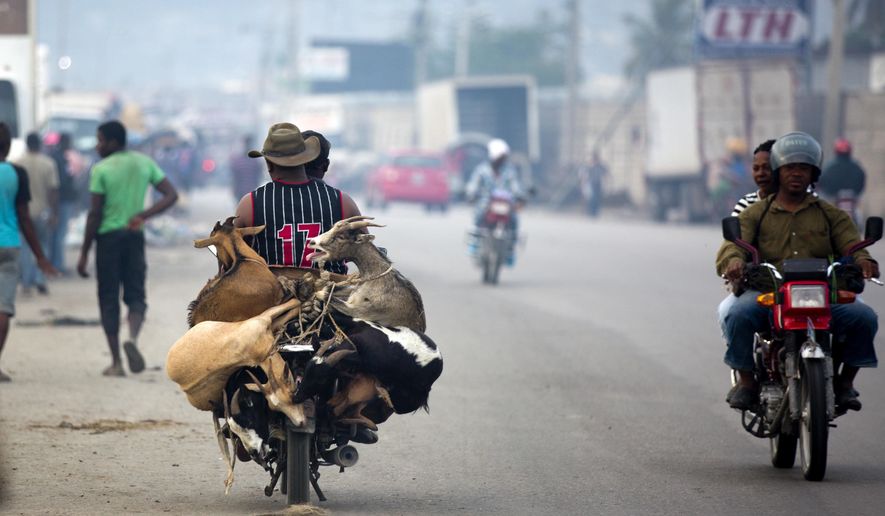The NAACP sued the Trump administration Wednesday arguing it discriminated against black people when it announced an end to special humanitarian protections for would-be illegal immigrant Haitians who’ve stayed in the U.S. since the 2010 earthquake.
The civil rights group used President Trump’s reported “s—-hole” comment earlier this month as evidence he was biased against the country — then went on to describe the horrid conditions of poverty, violence and poor health that plaque the people.
The new lawsuit also says Homeland Security used “noxious anti-Black stereotypes” to build a case against Haitians and, failing that, ignored conditions on the ground in deciding to end the special Temporary Protected Status that’s protecting nearly 60,000 Haitians from deportation.
“DHS’s Actions are consistent with the Trump administration’s … larger, racialized goals concerning immigration,” the National Association for the Advancement of Colored People said in the lawsuit.
The challenge is likely to be a stretch.
The law creating TPS specifically grants the decision solely to the Homeland Security secretary, and says it’s not renewable by the courts.
In November, then-acting Secretary Elaine Duke said that she was ending TPS for Haitians — with an 18-month wind-down period — after an extensive review of conditions on the ground, as called for in the law.
She said that Haiti had sufficiently recovered from the earthquake to be able to take its people back by 2019. The U.S. government, beginning under the Obama administration, had already started deporting Haitians not protected by TPS back to Haiti, suggesting the previous presidency also saw the country as able to take back its citizens.
But the NAACP says the decision was infused with racial animosity.
They pointed to a New York Times report claiming Mr. Trump had said in a meeting that Haitians “all have AIDS,” and to derogatory remarks the president made earlier this month about Haiti, El Salvador and African countries that currently have TPS designations.
Even as it blasted Mr. Trump for those derogatory comments, the NAACP painted a bleak picture of life in Haiti, saying 40 percent of the country’s population “lacked access to fundamental health and nutrition services” and 80 percent of the population lives below the poverty line.
The NAACP said Haiti suffers from “food insecurity,” and also said women face horrid gender-based violence.
The lawsuit says Ms. Duke ignored those horrid conditions when she concluded Haiti could handle the return of its people.
TPS is supposed to be temporary, lasting as long as disaster conditions persist. In the case of Haiti, the government said it’s made huge strides since the 2010 earthquake but had asked for one more extension.
Other countries with TPS, such as El Salvador and Honduras, which have had the protection for nearly two decades, have begged the U.S. to keep their people here permanently.
They and Haiti have all grown dependent on the cash their citizens earn in the U.S. and send back home. Those remittances account for nearly 30 percent of Haiti’s gross domestic product, 17 percent of El Salvador’s and 18 percent of Honduras’s.
About 400,000 people are protected by TPS, with half of those from El Salvador. TPS grants a stay of deportation and work permits, though it is not supposed to be permanent status.
A bipartisan group of lawmakers has proposed granting TPS holders a pathway to citizenship as part of ongoing immigration talks.
The NAACP said Homeland Security signaled its discriminatory intent against Haiti earlier in 2017 when it sought to collect information about public benefits claimed by Haitians living in the U.S.
• Stephen Dinan can be reached at sdinan@washingtontimes.com.




Please read our comment policy before commenting.